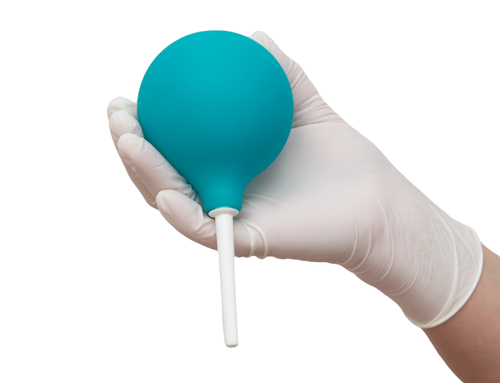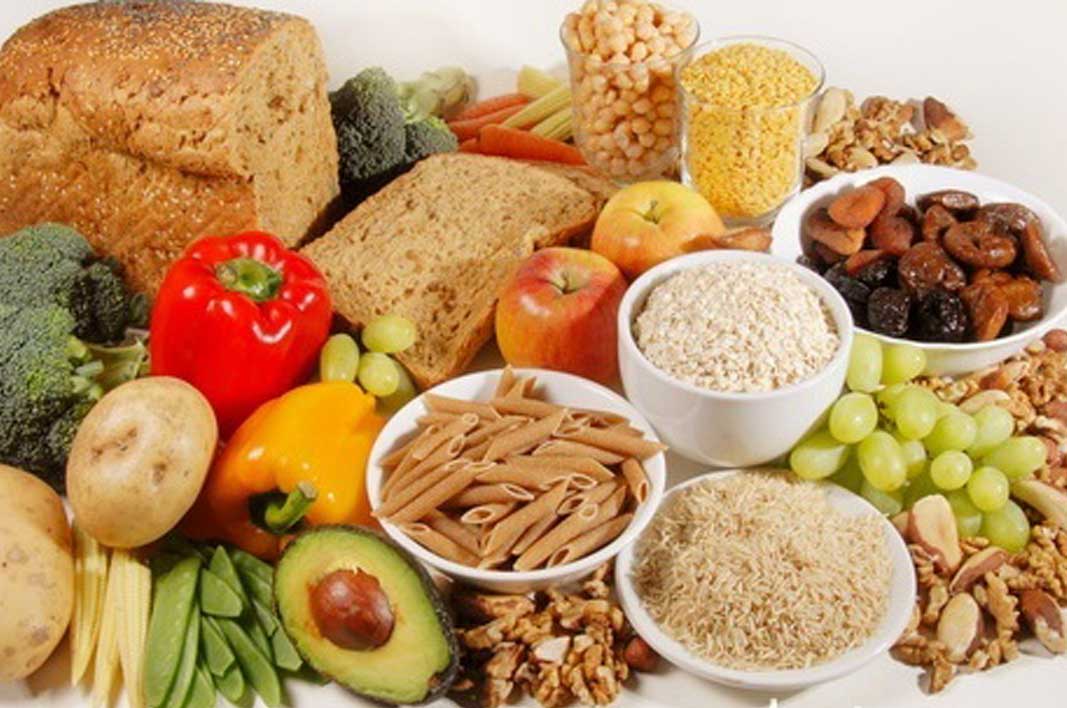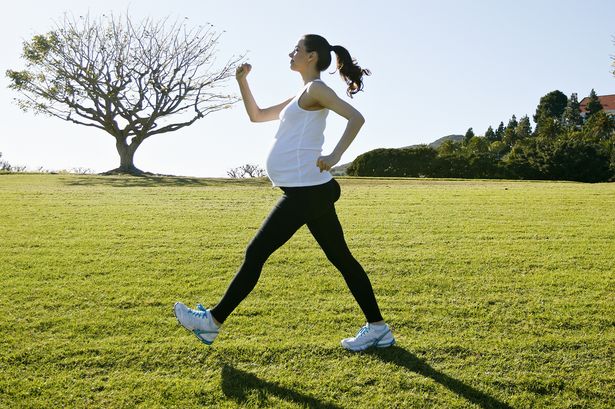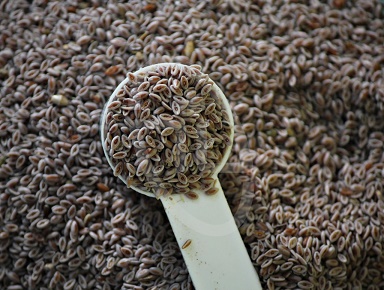An enema is a procedure that aims to cleanse your bowels with the help of water administered through your anus into your rectum and colon. It is especially helpful if you are suffering from constant constipation. While constipation is quite common in pregnancy, you might wonder whether enemas are safe during this special period.
Is Enema Safe During Pregnancy?

Enema during pregnancy is not recommended. At the very beginning of pregnancy, particularly during the first trimester, enema can lead to miscarriages, which is why it should be avoided. When this procedure is done during the last few weeks of gestation, it can lead to premature labor by causing contractions. In reality, enema is administered only prior to giving birth as a way to clear the birth canal of any obstructions and prepare the body for labor.
Enema can sometimes be necessary since certain women experience intestinal problems prior to delivery. Some also believe that using enemas before labor can slightly decrease chances of infection.
It is always a good idea to consult your doctor about whether this procedure is required, as he/she is the only one who can help you make the right decision.
Safe Alternatives to Treat Constipation During Pregnancy
Enema during pregnancy is not a recommended way to relieve constipation. Try these safe home remedies instead.
1. Eat Foods Rich in Fiber

Your daily consumption of dietary fiber should be no less than 25 grams, which can come from sources such as vegetables, fruits, whole grains, flaxseeds, etc. Don't forget to drink a glass of water for every spoonful of flaxseeds you consume.
2. Drink More Water

Drinking enough water, preferably 10 to 12 cups a day, is essential, especially after you have increased your fiber consumption. The combination of these two will spare you of constipation during pregnancy.
3. Do Exercise

Inactive women are more prone to having problems with their bowels. Moderate activities such as walking or swimming can reestablish the proper function of your intestines, so make sure you do exercises for half an hour, three times a week.
4. Try Non-Prescription Stool-Softeners
If you want to try enema during pregnancy, don't! If natural remedies don't seem to help with your constipation, you can try using non-prescription products, like Metamucil, which should be able to soften your stool. Always consult your doctor prior to using any over-the-counter drugs.
5. Cut Down on Iron Supplements

Since a well-balanced diet is bound to provide you with enough iron, there really is no need to take supplements. Nevertheless, if you are required to take them, taking small doses a few times a day rather than a one large dose, can help you get rid of intestinal problems.
6. Try Psyllium

Seeds of the plantain, known as psyllium, have proven to be quite a good remedy for constipation and irritable bowel syndrome (IBS). Mucilage in psyllium has the ability to soften feces. These seeds can be found in any health food store; however, you must talk to your doctor first since they are known to counteract the effects of some medicines.
7. Relax Muscles of Your Pelvic Floor

When you feel the urge to poop, sit on your toilet, inhale deeply, and finally exhale slowly so that muscles of your pelvic floor can properly relax. It is also a good idea to be on your tiptoes while sitting so that your knees end up being above the level of your hips, and the position can help relieve constipation.
8. Opt for Acupressure or Acupuncture

Find the point CV6 which is related with your digestion. This point can be found in the middle of your stomach, around two to three finger-widths below the belly button. Try pressing on this point twenty to thirty times, and repeat a couple of times a day. You can also seek help from someone with an experience in acupuncture to do this.
9. Try Aromatherapy

You should avoid enema during pregnancy, and instead, deal with your constipation naturally. Mix a couple drops of an essential oil of your choosing, such as lemon or bergamot oil, with a teaspoon of a carrier oil, and then add the mixture to your warm bath. Relax and massage your stomach gently while in bath.
10. Try Herbal Remedies

- Try mallow or dandelion tea, which you can make by leaving their leaves in a boiling water, and drink the tea on a daily basis.
- Senna is great for relieving constipation and is safe during gestation if consumed in small doses.
When to See Your Doctor
Constipation alone isn't a huge problem. However, you must contact your doctor as soon as possible if, in addition to being constipated, you are also experiencing pain in the abdominal region, or you notice blood and mucus.
Straining too much while trying to expel feces can cause hemorrhoids. Hemorrhoids are swollen veins in the area of your rectum, which are rarely serious, and usually disappear after the baby is born. But if you are bleeding or are going through some excruciating pain, contact your doctor immediately.
